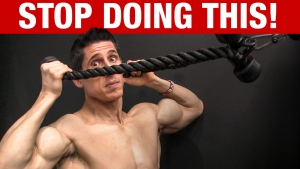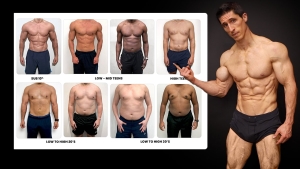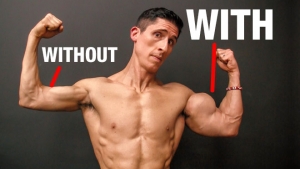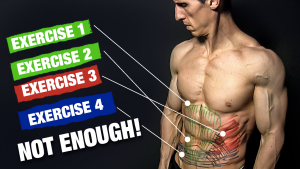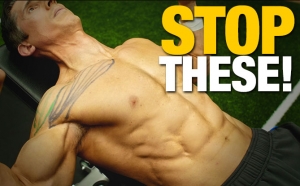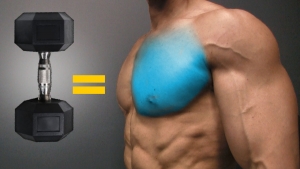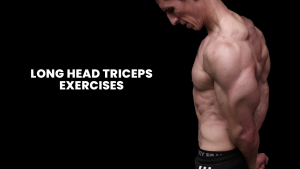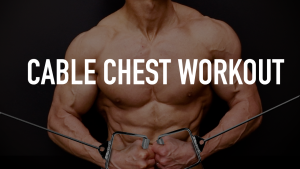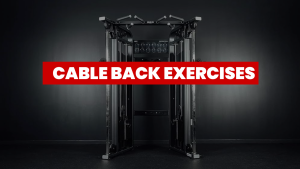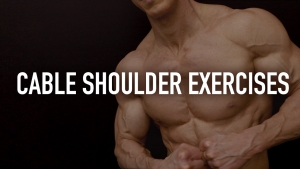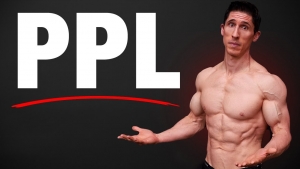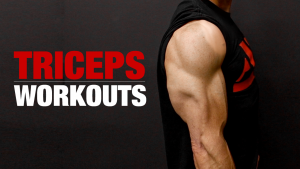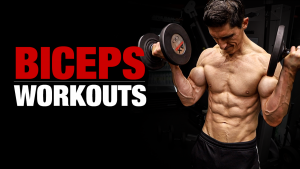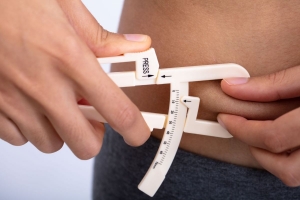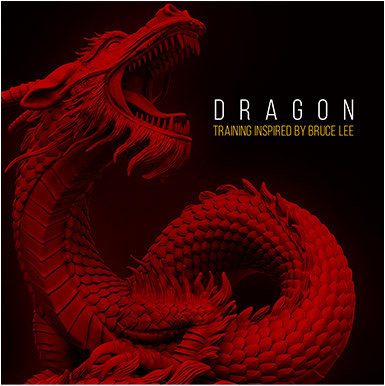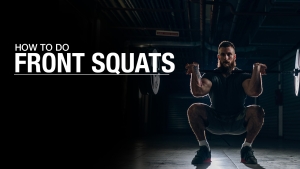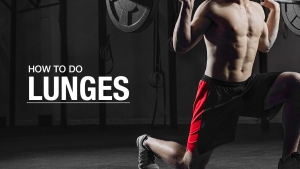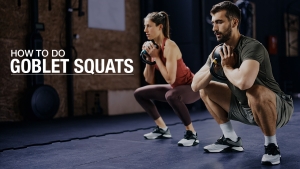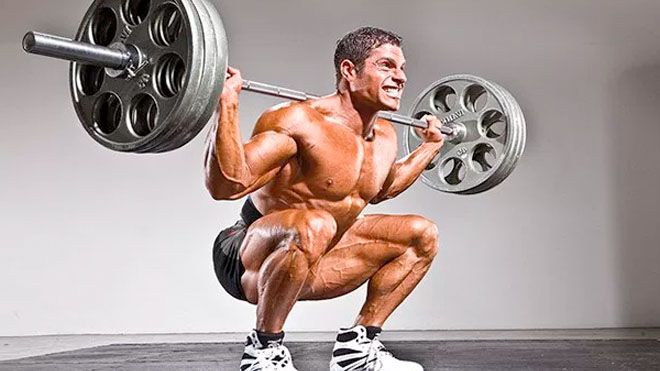
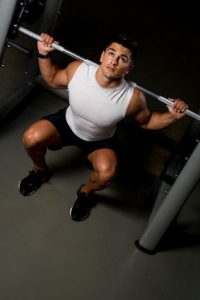
No, that’s not talc powder for improving grip…it’s actually crushed spine and bone from lifters past who disintegrated under yet another heavy loaded deep squat! When are they going to learn?!? Let me help clarify why this is happening and how I can help prevent your spine from suffering a similar fate.
A Quick Anatomy of the Spine
Lets start with a quick anatomy lesson. The lumbar spine is the lowest segment of your spine (just above your tailbone) that is naturally curved inward or toward the front when viewed from the side. It’s primary job is to provide stability to the pelvis and hips and its available motion is much less than what you’d see further up the spine in the thoracic area (mid back) and cervical area (in the neck).
The area however is so crucially important to not only well being but also entire spine health that there are numerous thick muscles intimately surrounding the lumbar segments (like construction support beams) that provide extra protection from undesirable movement. Well…even those muscles can’t protect the spine from stupidity! Sorry to be so blunt but it’s true.
Perhaps the worst motion you can subject your lumbar spine to is flexion under load with a bit of rotation. Take a look again at that rock bottom squat and what are you seeing? Lots of posterior pelvic tilt (or FLEXION) with a load (ummm….can you say 300 + pounds sometimes?!?) and a bit of rotation (even the slightest difference in foot placement right vs left can cause you to rotate your pelvis ever so slightly).
This is the recipe for disaster. There have been many a deep squatter who has blown out their disc mid-set and never were the same again. It’s serious…and oh so preventable!
Overloading The Legs Without Harming The Back
First of all, most of you know already that I think that there are plenty of ways to overload the legs that don’t involve heavy back squatting. Single leg Bulgarian Split Squats (with dumbbells), pistol squats, etc are all ways to push your limits of strength and size without endangering the health of the lower back. But that said, done correctly (rarely ever done), the back squat can be ok as long as you’re stopping your reps at parallel.
I say parallel but understand it can be taken slightly lower AS LONG AS YOU CAN MAINTAIN THE FLAT BACK at that lower position. As soon as that tailbone starts to curve under like a dog tucking it’s tail after stealing your grilled chicken (that would be my Black Lab Charlie!) you better stop that rep right there. Reverse direction, power up with the legs and keep the head up as you push back up to a standing position. The rewards of going any lower just don’t justify the risks.
Now, as a physical therapist who has seen numerous lumbar disc herniations in my day…it’s usually quite obvious as to what motion led to the final blowout but it’s not always so cut and dry as to what repetitively led to that last straw breaking. In some cases we’ll never know.
But what’s important to realize is…when it comes to protecting your back in the long run…you want to minimize your exposure to movements we know physiologically don’t jive with how your body works. Rock bottom or Deep Squatting is one of those moves.
Protect your back and prevent having it confused with powdered talc. Be the one at the squat rack that’s not only getting it right, but is standing upright years later…feeling strong, pain free and fresh from years of doing this exercise the right way.
Stay Strong,
Jeff
If you’ve either suffered from lower back pain that has been caused by your workouts or is causing you to miss your workouts…it’s time you start training smarter. For all new and unique ways to spark new muscle growth and strength without breaking down your joints in the process…come check out the AthLEAN-X Training System (developed by former NY Mets Physical Therapist Jeff Cavaliere) and discover how to put your final painful rep behind you forever!

Jeff Cavaliere M.S.P.T, CSCS
Jeff Cavaliere is a Physical Therapist, Strength Coach and creator of the ATHLEAN-X Training Programs and ATHLEAN-Rx Supplements. He has a Masters in Physical Therapy (MSPT) and has worked as Head Physical Therapist for the New York Mets, as well as training many elite professional athletes in Major League Baseball, NFL, MMA and professional wrestling. His programs produce “next level” achievements in muscle size, strength and performance for professional athletes and anyone looking to build a muscular athletic physique.
